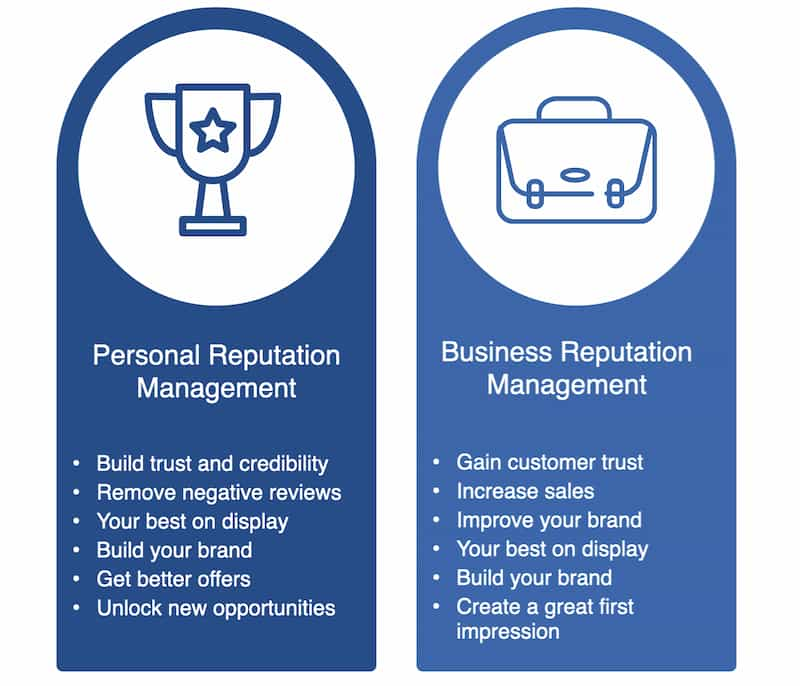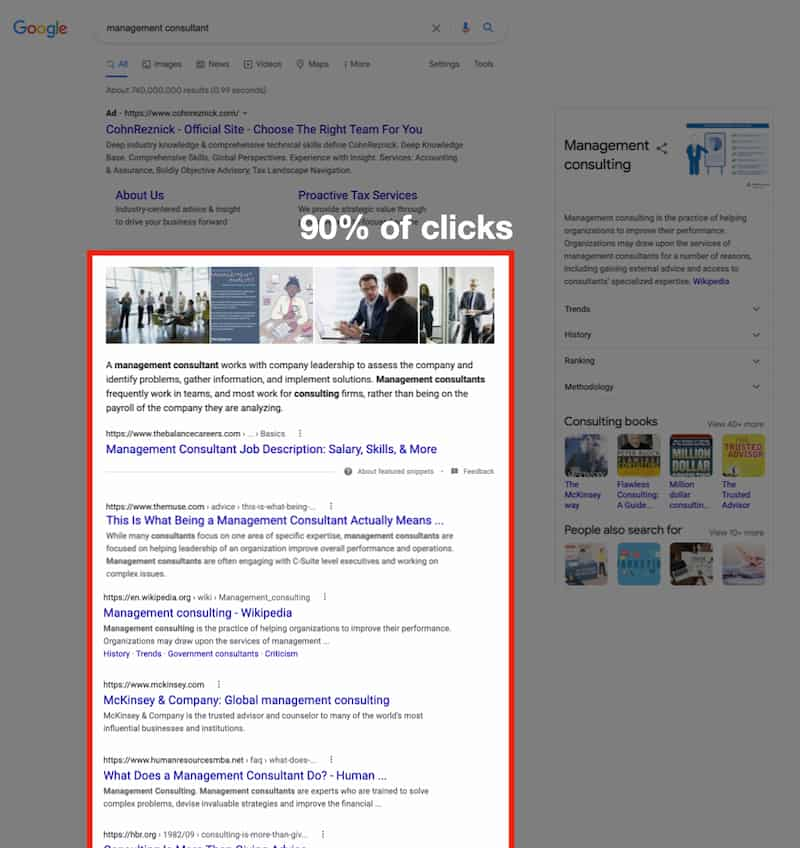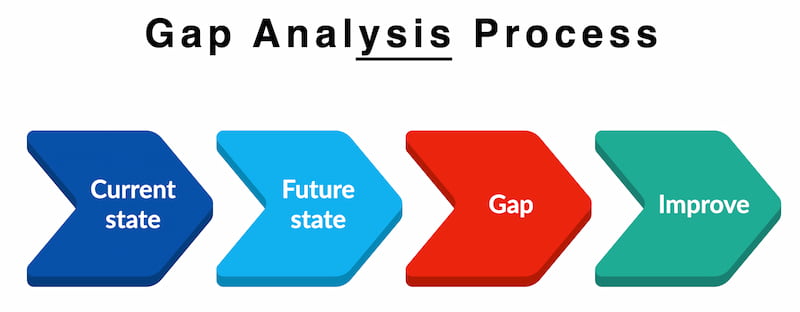Reputation Management for People? Steps to Begin
With a vast majority of interactions and evaluations happening online, managing one’s reputation has never been more critical. It’s not just about mitigating negative content; it’s also about actively building and nurturing a positive online persona.
Highlights
-
Significance of First Impressions:
- The internet is the primary source for many to form their initial impressions of a person.
- A positive online reputation boosts trust and credibility.
- This reputation impacts professional opportunities, networking, and even personal relationships.
-
Impact of Search Result Visibility:
- The first pages of search results significantly influence perceptions about an individual or brand.
- Advanced AI tools emphasize authoritative content, accentuating the need to control one’s online narrative.
-
Strategies to Fortify Online Reputation:
- Constant surveillance is key, with real-time alerts for mentions across various platforms, from blogs and social media to industry directories.
- Reputation gap analysis involves comparing one’s online reputation to that of industry leaders to identify areas for improvement.
-
Managing Online Content:
- Efforts should be concentrated on both mitigating unfavorable online content and cultivating positive content.
- Tactics involve understanding site policies, weighing the implications of content removal, and producing positive content using insights from reputation gap analysis.
-
Continuous Maintenance and Adaptability:
- Online reputation management is a never-ending commitment.
- Regular updates, diversification across platforms, engagement with emerging media, and addressing inaccuracies promptly are all vital to preserving and enhancing one’s online image.
Reasons for Managing Online Reputation
-
First Impressions Matter: The internet is often the first place people go to learn more about someone. Whether it’s a potential employer, a prospective date, or a curious acquaintance, your online footprint can form lasting impressions.
-
Increased Trust and Credibility: A clean and positive online reputation enhances your trustworthiness. It shows that you’re responsible, genuine, and worth trusting – be it in a professional or personal context.
-
Professional Opportunities: Employers frequently conduct online searches of potential candidates. A strong, positive online presence can make a difference in landing a dream job or losing it to someone else.
-
Networking: Establishing a good reputation online opens doors to various networking opportunities. Potential partners, collaborators, or mentors are more likely to engage with individuals who present a trustworthy online profile.
-
Control Over Your Narrative: Owning your narrative and being proactive in managing your online presence allows you to present your best self to the world, rather than leaving it to random comments, tags, or posts by others.
Benefits of a Positive Personal Reputation
-
Career Advancement: A well-maintained online reputation can lead to job promotions, leadership roles, or even invitations to speak at conferences and events.
-
Dating and Relationships: A positive online image can affect personal relationships too. Potential partners often turn to the internet for a quick background check, and a positive online reputation can improve your chances in the dating sphere.
-
Attracting Opportunities: Whether it’s a book deal, a guest post invitation, or a business partnership, people prefer associating with those who have a positive reputation.
-
Enhanced Trust for Executives: For leaders and executives, a solid online reputation is crucial. It can instill confidence in investors, stakeholders, and employees, ensuring that they believe in your vision and trust your decisions.

Visibility is Important to Reputation
The first one or two pages of search results play a highly visible role in shaping perceptions about individuals and their personal brands. The simple reason is human behavior: the majority of users rarely venture beyond the first page of search results, let alone the second. So concentrate here at first.
This means that the initial pages essentially act as the frontline of your online reputation. Search engines, with their ever-changing algorithms, prioritize content that is most relevant and trustworthy. Therefore, any negative or misleading information on seemingly authoritative online publications can significantly damage or improve a user’s perception of you or your brand.
Recently, advanced AI systems and tools, like Google’s Bard, Knowledge Panel, OpenAI, and others, rely heavily on credible data when generating summaries or insights about a topic or individual. Some aspects of AI-driven features, especially Google, source information from the top results, making sure that only the most authoritative content contributes to the narrative about the individual they present.
If the most authoritative information online about you is unfavorable or inaccurate, these AI tools are more likely to perpetuate that narrative, further underscoring the necessity of controlling and curating online content related to your name or brand.

How Can You Fortify Your Personal Reputation Online?
Protecting your personal reputation online boils down to a triad of critical actions:
- Keep a vigilant eye on online mentions related to you.
- Analyze the disparity between your online presence and industry leaders you admire.
- Devise a comprehensive plan to bridge this gap.
Here’s a deeper dive into how you can take charge of your personal reputation online.
Online Reputation Monitoring
The foundation of influencing your digital reputation lies in effective monitoring. Once you know what is out there about you, and about similar “brands”, you can make a plan to move forward. It’s essential to employ tools that keep you abreast of mentions and discussions involving your personal brand. Real-time alerts can ensure that you’re never in the dark when your name pops up online.
A robust monitoring system should send notifications when your name appears across:
- Blogs
- Podcasts
- Reviews
- Social media channels
- News outlets
- Forums
- Industry directories
- Websites
During your regular scans of online discussions about you, pinpoint content that might not be portraying you in the best light. Documenting and tracking the visibility of these instances will be invaluable when strategizing for reputation enhancement.
Reputation Gap Analysis: The Deep Dive
Having equipped yourself with real-time monitoring insights, it’s time to compare your online reputation with that of a respected professional similar to you. At Reputation X, we call this a “similar entity”.
Here’s what to look out for:
- Videos
- Social media presence
- Photographs
- Industry mentions
- Reviews
- Online profiles
- Biographical pieces
- Association with professional bodies
- Official websites
- Other significant content
Stack these findings against what comes up when you Google your own name. Identify the top content you lack and explore the platforms that host this content. This will give you clarity as to what your reputation narrative might look like.
Crafting Your Personal Reputation Management Blueprint
Once you have completed your gap analysis of similar entities, you will be equipped with insights into your current online reputation and have a clear vision of what you want your narrative to be. Next, it’s time to devise a comprehensive strategy. This roadmap should focus on two pivotal elements:
- Mitigating negative mentions
- Amplifying positive content
Mitigating Unfavorable Listings
Kick-off by identifying undesirable search results you aim to downplay. To proceed with this, familiarize yourself with the specific site’s terms of service. It’s a misconception that one can simply ask for the removal of any unfavorable reviews or mentions.
While you might succeed in convincing some publishers to take down negative content, it’s crucial to weigh the potential repercussions. In certain instances, seeking the removal of adverse information might backfire, drawing even more attention to it.
Remember, the prominence of the negative content directly correlates with its potential to tarnish your reputation. For context, a search result that secures the top spot on Google typically garners about 31.7% of the clicks, whereas one at the 10th position receives merely 3%.
Cultivating Positive Content
With a strategy to combat negative mentions in place (if there are negative mentions) shift your focus towards generating positive content about yourself. Revisit your gap analysis, concentrating on the top-performing content of the benchmarked professional. Explore avenues to improve your presence on similar platforms or sites. For example, if that person has a Crunchbase profile, perhaps you should too.
Enhancing positive search visibility and suppressing negative mentions can greatly benefit from a combination of tactics used in both public relations and search engine optimization.

Personal Online Reputation Management is a Journey
Maintaining a sterling online reputation is not a one-time task but a continuous journey. In an ever-evolving digital landscape, where information is dynamic, and search algorithms get updated regularly, it’s imperative to stay vigilant and proactive. For example, this year alone Google has updated it’s algorithm in a major way at least three times. That does not include the smaller algorithm adjustments that happen daily.
Persistent Monitoring
It’s not enough to set up your online presence and forget about it. Constantly monitor what’s being said about you across search engines and social media platforms. Insights from this real-time tracking serve as early warning signals, allowing you to address any issues head-on before they escalate.
Refresh & Update Content Regularly
Stagnant content can get outdated and slide down in search rankings over time. Fresh content tends to be more buoyant. Make it a practice to periodically refresh your content – it’s even a good idea to setup calendar events to do it monthly.
Whether it’s updating your professional achievements on LinkedIn, sharing recent photos on Instagram, or penning new blog posts, make sure your online content remains fresh, relevant, and engaging.
- Address Inaccuracies Promptly
Misinformation or outdated data can mislead audiences and potential stakeholders. Should you come across any inaccurate details associated with your name or brand, take swift action. This might involve contacting website administrators, issuing clarifications on social platforms, or even leveraging tools like Google’s ‘Right to Be Forgotten‘ in specific scenarios. - Diversify Your Online Presence
Relying solely on one platform or type of content is a risky strategy. Diversify by contributing articles to renowned industry websites, participating in podcasts, or exploring emerging social media platforms. By establishing a varied digital footprint, you not only enhance your visibility but also cement your authority in your domain. For example, here is a list of common sites executives have in their search results. - Engage with New Media & Platforms
The digital realm is dynamic, with new platforms and media types cropping up regularly. Stay abreast of these trends. For instance, if there’s a buzz around a new social media app, consider establishing a presence there. If podcasting is something you are comfortable with, maybe it’s time to lend your voice.
In essence, personal online reputation management is an ongoing commitment. It requires consistent effort, adaptability to the digital world’s shifts, and a proactive approach to molding how the world perceives you.
To Sum It Up
Maintaining a positive online reputation is really important, with first impressions by multiple entities (people, AI, and more) often formed from online searches. A positive online persona fosters trust and credibility, and can be a deciding factor in professional opportunities. Benefits of a strong and positive online reputation extend to career advancements, relationship prospects, and opening doors to new possibilities.
Importantly, the first couple of search result pages play a pivotal role in shaping perceptions, emphasizing the importance of curating top-tier results associated with a person’s name or brand.
Advanced AI systems like Google’s Knowledge Panel highlight the most authoritative content, stressing the need to control these sources of information as best you can.
Protecting your online reputation encompasses continuous monitoring of mentions, analyzing the gap between industry leaders, and strategizing to bridge this gap.
Effective strategies involve mitigating negative mentions, promoting positive content, and consistently updating and diversifying one’s online presence. In conclusion, managing an online reputation is an ongoing process demanding regular vigilance, adaptability, and proactive engagement.
Tags: Personal Branding.
